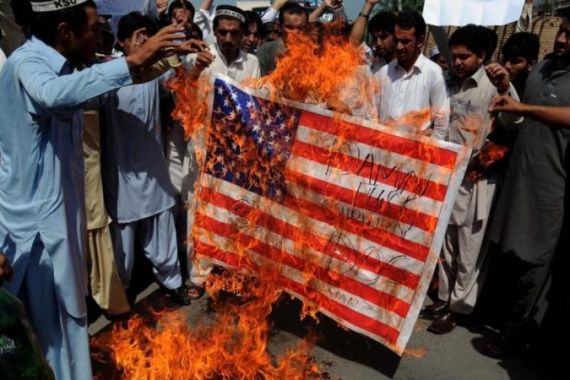Brazil releases Google executive in video row
Local company official was arrested for failing to remove video, as court asked YouTube to take down anti-Islam clip.

Police have released the head of Google Inc’s Brazil operations after his detention for not taking down a YouTube video a judge ruled violated local electoral law.
A police spokeswoman said on Thursday Google’s most senior executive in Brazil, Fabio Jose Silva Coelho, was released after agreeing to appear in court at a still undetermined date.
Keep reading
list of 4 itemsHong Kong’s first monkey virus case – what do we know about the B virus?
Why will low birthrate in Europe trigger ‘Staggering social change’?
The Max Planck Society must end its unconditional support for Israel
A Brazilian court had ordered YouTube to remove the anti-Islam video that prompted violent protests across the Muslim world, just as an elections court separately ordered the arrest of Coelho after the popular video-sharing service failed to remove another, unrelated video attacking a mayoral candidate.
Legal experts and industry insiders say the case draws attention to what they call outdated Brazilian laws used to police the internet.
Google is appealing the order, which follows a similar decision by another Brazilian election judge. In that case, a judge found another senior executive responsible for violating local election law. That decision was overturned last week.
The legal challenges underline broader questions about Google’s responsibility for content uploaded by third parties to its websites.
Anti-Islam video
Tuesday’s decision by a state court in Sao Paulo, home to a large Middle Eastern immigrant community, came just hours after Brazilian President Dilma Rousseff criticised “Islamophobia” in Western countries in a speech at the UN.
In a statement, the court said Judge Gilson Delgado Miranda gave the video-sharing site ten days to remove videos of the film, “Innocence of Muslims”.
After that, it will face fines of $5,000 a day for every day the clips remain accessible in Brazil.
The case against the controversial film was brought by a Brazilian Muslim group, the National Islamic Union, against Google Inc, the owner of YouTube, for posting on the internet a film it said was offensive and a violation of the constitutional right to freedom of religion.
Miranda said the case juxtaposed freedom of expression and the need to protect individuals or groups of people from action that might incite religious discrimination.
Miranda concluded that banning something illegal should not “offend” freedom of thought and expression, according to the ruling posted online by Estado de S. Paulo newspaper.
Seventeen people were killed in Pakistan during demonstrations over the video on September 21.
People involved in the film, an amateurish 13-minute clip of which was posted on YouTube, have said it was made by a 55-year-old California man, Nakoula Basseley Nakoula.